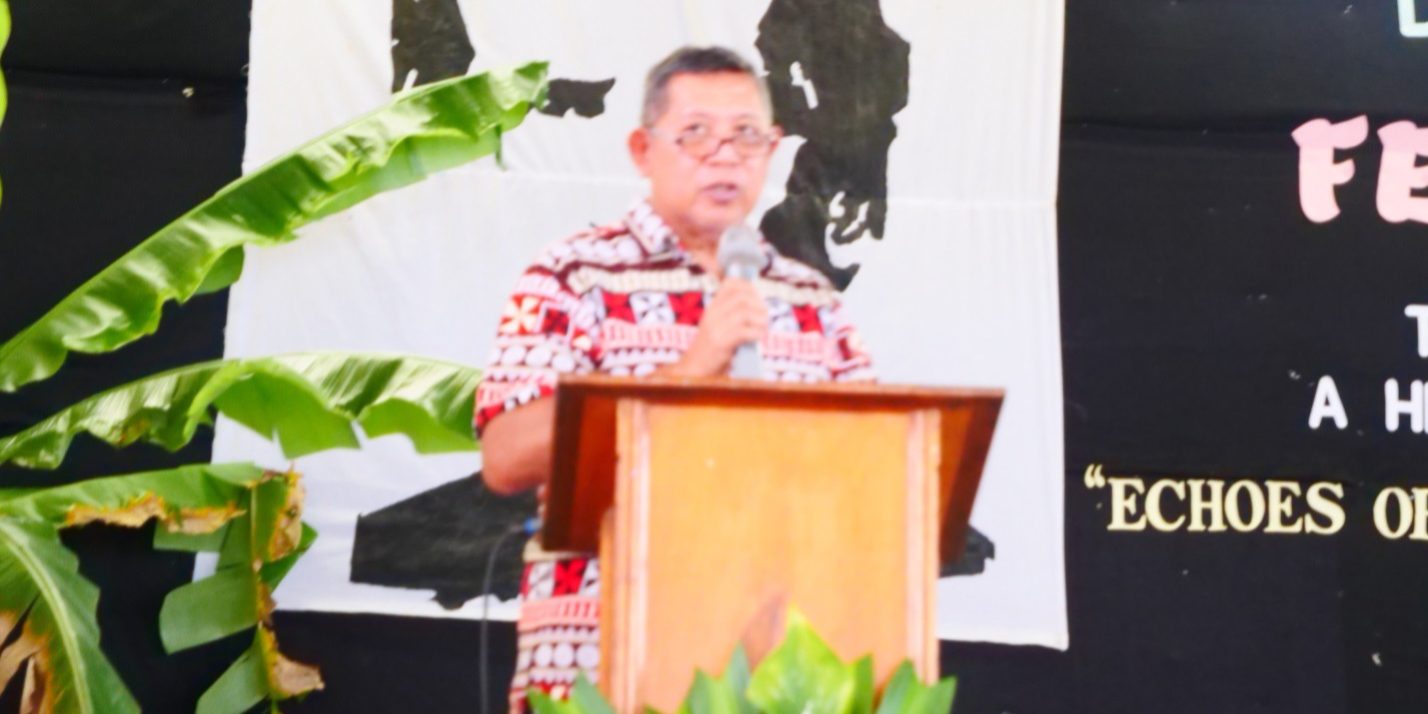IN a stunning showcase of the country’s diverse cultures, the Don Bosco Technical institute in Solomon Islands last Friday celebrated the birthday of the institution’s Italian founder Don Melchior Bosco along with Don Bosco Institutes in 136 countries across the globe.
In honor of the founding father, the Don Bosco Technical Institute Solomon Islands organized its 2024 Cultural Day to coincide with his birthday celebration under the theme “Echoes of Culture and Heritages Shining with Bosco’s light.”
The two-fold celebration saw students put on a stunning showcase of the country’s rich and diverse cultural heritage according to seven cultural grouping categories in embracement of the good works of the Late Bosco.
Group 1 comprised Guadalcanal students, Group 2 comprised Makira-Ulawa, Temotu and Renbel students, Group 3 consisted of North Malaita students, Group 4 of Isabel students, Group 5 comprised Malaita’s Kwara’ae, Kwaio and Langalanga students, Group 6 consisted of students from the Western and Choiseul provinces, while Group 7 comprised Malaita’s Are’are and southern region students.
The Guadalcanal students opened the show with a traditional chupu ceremony symbolizing the people of Guadalcanal as the traditional owners of the land upon which the school was established and their consent to offer the land for a worthy cause.
Each of the other groups performed their traditional dancing and sung self-composed songs to cherish the special occasion.
The combined group of students from Makira-Ulawa, Temotu and Renbel provinces provided a stunning display of traditional dances from Temotu Province.
All the other groups, likewise also staged stunning cultural displays from their provincial groupings.
These performances accorded the staff, parents and guests who attended the program an exceptional time of culturally-enriching entertainment.
Principal Paul Allen Daro said this year’s Don Melchior Bosco birthday anniversary celebration was a special one because normally they would just celebrate the day with a Holy Eucharist and a meal together.
Mr Daro said they included the cultural program into the celebration because next month on 10 September, the institute will launch its 25th anniversary program. The institute will be celebrating its 25th Anniversary on 10 September 2025.
Rector Father Raphael in his remarks highlighted the significance of the two-fold celebration.
He said Don Bosco Institutes, including Don Bosco Solomon Islands, owe it to the good works of the founding father for their establishment.
“We are here because of the heart of Don Melchior Bosco who had a heart for the impoverished.”
Father Sunny Fajardo said the main aim of the program was to celebrate the birthday of Late Saint Don Bosco with a highlight of the diverse cultures of each and every student in the school.
Don Bosco Institute Solomon Islands enrolls students from throughout the country, offering youths who cannot make it through the normal education system through to high school or university an opportunity to either secure formal employment or be self-employed by equipping them with crucial like-skills.
Saint John Melchior Bosco was an Italian Catholic Priest, Educator and Writer of the 19th Century. He was born on 16 August 1815 in Castlenuovo Don Bosco in Italy.
He died at the age of 72 on 31 January 1888 in Turin, Italy.
John Melchior Bosco is often referred to as Don Bosco and ‘Don Bosco’ means ‘Father Bosco’ in Italian.
Don Bosco was a young priest who focused his concern on the orphaned and homeless child laborers he encountered in Turin, Italy.
In 1859, inspired by the example of St Francis de Sales, Don Bosco founded the Salesians to befriend, educate and help these impoverished boys.
Don Bosco is known as a man of bold courage. He was the instrument that God used to found a religious family dedicated not only to helping and educating the young and the disadvantaged but to journey with them towards Heaven.
By IAN LADDS OSO
Solomon Star, Honiara
Guadalcanal students preparing a chupu for presentation as part of their cultural program
Makira-Ulawa, Temotu and Renbel students performing their cultural item
North Malaita students preforming one of their cultural items.
Students from Western and Choiseul provinces performing one of their cultural items
Students from Isabel Province in their cultural attire









